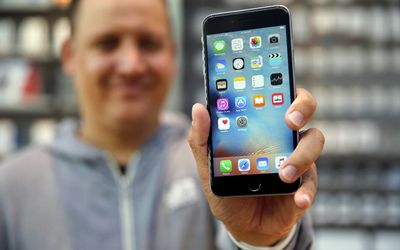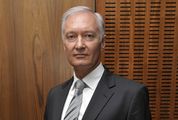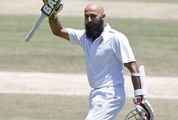STANLEY Shaw, a researcher at Massachusetts General Hospital in Boston, recalls the difficulty most scientists once faced when launching a medical research study. Because of financial constraints, such studies were generally concentrated in a relatively small geographic area, where researchers would post signs on lampposts or place newspaper adverts, seeking volunteers.
Participants would keep a diary or be interviewed every few months. The research would be gathered and published only years later.
All that changed for Dr Shaw when his iPhone app called GlucoSuccess appeared on Apple’s App Store in March this year. Within weeks, he had enrolled 5,600 people who either had Type 2 diabetes or whose blood sugar level was high enough to qualify them as "pre-diabetes".
...
PARTICIPANTS enter details about their weight, glucose levels, exercise and food intake into their iPhone and the information is passed to researchers — almost instantly.
"The app is a real game changer from a researcher’s perspective," Dr Shaw says of GlucoSuccess.
"The smartphone is a very powerful way to gather data because it is portable and people view it as an extension of their lives."
Dr Shaw is not alone in predictions of a technological revolution in medical research. Doctors have launched similar, separate studies using apps to research asthma, Parkinson’s disease, breast cancer and cardiovascular disease.
Researchers rolled out new apps in October, designed to study whether iPhones can help diagnose autism, skin cancer and even epilepsy. These phone-based applications are opening a unique window into disease, and how to measure and control it.
The researchers have benefited from a decision by Apple to provide a no-cost development framework, ResearchKit. This application programming interface, allows scientists at universities to produce apps that have the user-friendly look and feel of more commercial apps.
...
RESEARCHKIT has been designed to work with HealthKit, which uses the iPhone’s hardware to measure such things as exercise and the number of steps taken, and share those data with other apps.
Eric Schadt, director of the Icahn Institute for Genomics and Multiscale Biology at Mount Sinai Hospital in New York, who designed the asthma study, is an evangelist for using mobile technology in medical studies.
"The future of research is going to be in these types of studies that are casting broader nets over more diverse people, not constrained by geography or the kind of traits you can collect," Dr Schadt says.
Scope for discoveries will become greater and the cost lower, he says, adding: "There is no real downside."
The studies are reaching a global audience. The cardiovascular app, MyHeart Counts, is now available in the UK and Hong Kong, and other countries in Europe and Asia are set to follow. Researchers now have a tool for looking at how culture, cuisine and lifestyle can profoundly affect health.
"This kind of study formerly took decades to implement and involved hundreds of people to get insights from the research," says Euan Ashley, a gregarious Scot who is leading the cardiovascular research at the Stanford University School of Medicine in California. Dr Ashley’s study signed up 10,000 subjects in its first week and after six months, has 50,000 participants, many times the few hundred typical in traditional studies. Jeff Williams, Apple’s senior vice-president for operations, says ResearchKit is the work of a small group at Apple who saw the potential benefits of the technology to medicine.
"There (have) been amazing advances in healthcare and treatment, but the engine that drives the research process has been stuck in a bit of a time warp," he says.
"When we looked at that problem, we thought this looks like a perfect fit for technology. It’s all about taking friction out of the research process."
...
APPLE’S role has been limited to designing the ResearchKit software and helping the first five apps get off the ground. The company is also funding a study to find the best way to measure cognition, so that ResearchKit can be used to measure Alzheimer’s disease.
Apple, of course, benefits from any use that expands the desirability of an iPhone, but the company has made ResearchKit’s software open source so that it could be "ported" to Android phones at no cost. However, no one has yet done so, and people will be able to take part in the studies only if they have an iPhone.
Some researchers are concerned that because iPhones represent about a fifth of the global smartphone market and that a more affluent demographic tends to own them, that could skew research into areas such as diabetes, which can be affected by income and diet. Another obvious concern is privacy, because of the intimate medical data being handled.
The information gathered by the apps does not reside on Apple’s servers, but with Sage Bionetworks, a nonprofit body in Seattle co-founded by Dr Schadt. The data are scrubbed of identifying information, but the consent process requires study participants to provide their name and phone number, so there is lingering concern about the safety of their personal information.
Despite such real concerns, the iPhone’s vast potential in the research field is shown by how it collects data. Not only does it have a built-in accelerometer that measures steps, but the diabetes study uses Bluetooth-enabled glucose-measuring meters so blood sugar is uploaded automatically, cutting the scope for errors.
Dr Schadt says that in the six months of his asthma study, the 8,800 participants have shown that being part of the research altered their own behaviour through the feedback they were receiving. The iPhone sends data about activity and — using the phone’s GPS chip — allows researchers to link an asthma attack to the weather, pollen count and pollution levels.
The app’s potential to give feedback to users is a big change from before. "The app is helping people manage their condition by feeding back information in ways that are more easily digestible to a lay person," Dr Schadt says.
© Financial Times

iPhone apps are used to research diabetes, asthma, Parkinson’s disease, breast cancer and cardiovascular disease, but privacy concerns remain. Picture: REUTERS
STANLEY Shaw, a researcher at Massachusetts General Hospital in Boston, recalls the difficulty most scientists once faced when launching a medical research study. Because of financial constraints, such studies were generally concentrated in a relatively small geographic area, where researchers would post signs on lampposts or place newspaper adverts, seeking volunteers.
Participants would keep a diary or be interviewed every few months. The research would be gathered and published only years later.
All that changed for Dr Shaw when his iPhone app called GlucoSuccess appeared on Apple’s App Store in March this year. Within weeks, he had enrolled 5,600 people who either had Type 2 diabetes or whose blood sugar level was high enough to qualify them as "pre-diabetes".
...
PARTICIPANTS enter details about their weight, glucose levels, exercise and food intake into their iPhone and the information is passed to researchers — almost instantly.
"The app is a real game changer from a researcher’s perspective," Dr Shaw says of GlucoSuccess.
"The smartphone is a very powerful way to gather data because it is portable and people view it as an extension of their lives."
Dr Shaw is not alone in predictions of a technological revolution in medical research. Doctors have launched similar, separate studies using apps to research asthma, Parkinson’s disease, breast cancer and cardiovascular disease.
Researchers rolled out new apps in October, designed to study whether iPhones can help diagnose autism, skin cancer and even epilepsy. These phone-based applications are opening a unique window into disease, and how to measure and control it.
The researchers have benefited from a decision by Apple to provide a no-cost development framework, ResearchKit. This application programming interface, allows scientists at universities to produce apps that have the user-friendly look and feel of more commercial apps.
...
RESEARCHKIT has been designed to work with HealthKit, which uses the iPhone’s hardware to measure such things as exercise and the number of steps taken, and share those data with other apps.
Eric Schadt, director of the Icahn Institute for Genomics and Multiscale Biology at Mount Sinai Hospital in New York, who designed the asthma study, is an evangelist for using mobile technology in medical studies.
"The future of research is going to be in these types of studies that are casting broader nets over more diverse people, not constrained by geography or the kind of traits you can collect," Dr Schadt says.
Scope for discoveries will become greater and the cost lower, he says, adding: "There is no real downside."
The studies are reaching a global audience. The cardiovascular app, MyHeart Counts, is now available in the UK and Hong Kong, and other countries in Europe and Asia are set to follow. Researchers now have a tool for looking at how culture, cuisine and lifestyle can profoundly affect health.
"This kind of study formerly took decades to implement and involved hundreds of people to get insights from the research," says Euan Ashley, a gregarious Scot who is leading the cardiovascular research at the Stanford University School of Medicine in California. Dr Ashley’s study signed up 10,000 subjects in its first week and after six months, has 50,000 participants, many times the few hundred typical in traditional studies. Jeff Williams, Apple’s senior vice-president for operations, says ResearchKit is the work of a small group at Apple who saw the potential benefits of the technology to medicine.
"There (have) been amazing advances in healthcare and treatment, but the engine that drives the research process has been stuck in a bit of a time warp," he says.
"When we looked at that problem, we thought this looks like a perfect fit for technology. It’s all about taking friction out of the research process."
...
APPLE’S role has been limited to designing the ResearchKit software and helping the first five apps get off the ground. The company is also funding a study to find the best way to measure cognition, so that ResearchKit can be used to measure Alzheimer’s disease.
Apple, of course, benefits from any use that expands the desirability of an iPhone, but the company has made ResearchKit’s software open source so that it could be "ported" to Android phones at no cost. However, no one has yet done so, and people will be able to take part in the studies only if they have an iPhone.
Some researchers are concerned that because iPhones represent about a fifth of the global smartphone market and that a more affluent demographic tends to own them, that could skew research into areas such as diabetes, which can be affected by income and diet. Another obvious concern is privacy, because of the intimate medical data being handled.
The information gathered by the apps does not reside on Apple’s servers, but with Sage Bionetworks, a nonprofit body in Seattle co-founded by Dr Schadt. The data are scrubbed of identifying information, but the consent process requires study participants to provide their name and phone number, so there is lingering concern about the safety of their personal information.
Despite such real concerns, the iPhone’s vast potential in the research field is shown by how it collects data. Not only does it have a built-in accelerometer that measures steps, but the diabetes study uses Bluetooth-enabled glucose-measuring meters so blood sugar is uploaded automatically, cutting the scope for errors.
Dr Schadt says that in the six months of his asthma study, the 8,800 participants have shown that being part of the research altered their own behaviour through the feedback they were receiving. The iPhone sends data about activity and — using the phone’s GPS chip — allows researchers to link an asthma attack to the weather, pollen count and pollution levels.
The app’s potential to give feedback to users is a big change from before. "The app is helping people manage their condition by feeding back information in ways that are more easily digestible to a lay person," Dr Schadt says.
© Financial Times




















Change: -1.04%
Change: -1.17%
Change: -1.77%
Change: -0.53%
Change: -2.66%
Data supplied by Profile Data
Change: -1.04%
Change: -1.61%
Change: -1.04%
Change: 0.00%
Change: -1.66%
Data supplied by Profile Data
Change: 1.32%
Change: 1.02%
Change: 1.72%
Change: 1.91%
Change: -0.22%
Data supplied by Profile Data
Change: 1.51%
Change: -1.14%
Change: 0.21%
Change: -4.95%
Change: -6.48%
Data supplied by Profile Data